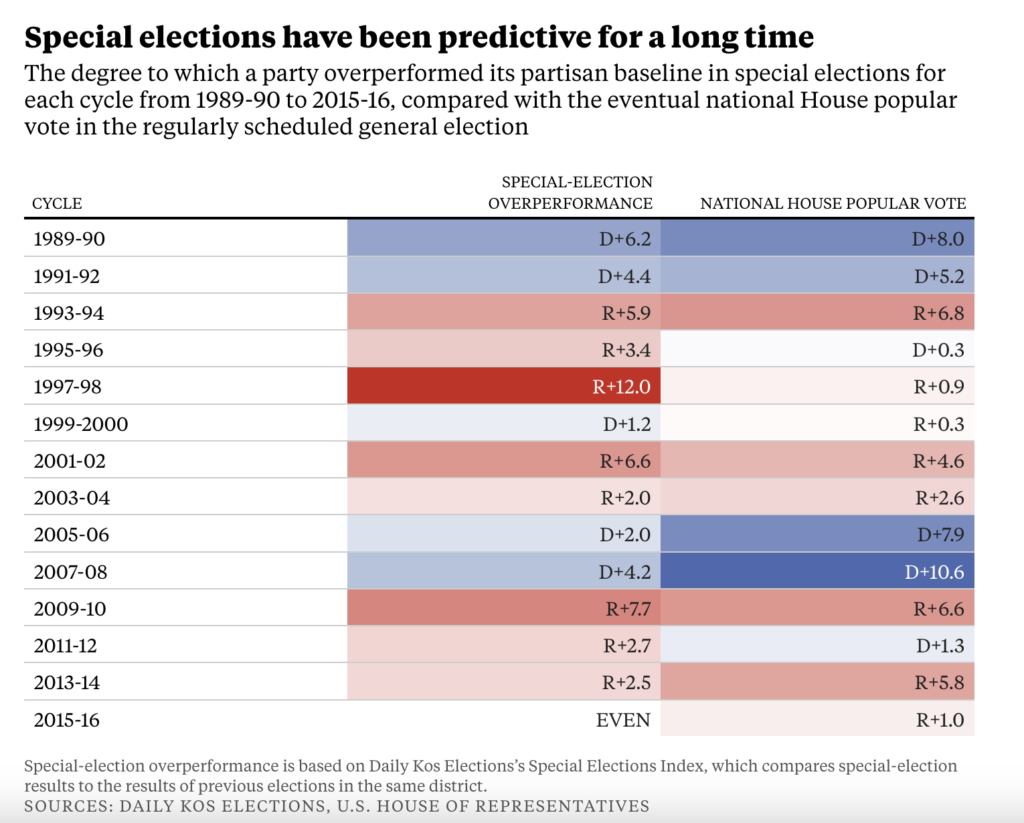Republicans in the shadow of Dobbs

Democrats keep overperforming bigly in special elections:
Democrats just scored a big win in an election on Tuesday: Democrat Hal Rafter defeated Republican James Guzofski 56 percent to 44 percent in a special election to fill a Republican-held seat in the New Hampshire state House. Assuming Democrats win another special election in November in a solidly blue seat, Rafter’s win means the New Hampshire state House will be tied at 198 Republicans and 198 Democrats (with two independents and two seats still vacant). On paper, that will end full Republican control of New Hampshire state government. (In practice, whoever controls the House could change by the day depending on legislator absences.)
It’s also the latest example of Democrats outperforming in a special election, a trend that could be a harbinger of a very good year for Democrats in 2024. This New Hampshire district is 6 percentage points more Republican-leaning than the nation as a whole, according to a weighted average of the 2020 and 2016 presidential results in the district.* Yet Rafter won by 12 points — an 18-point Democratic overperformance above their partisan baseline.
“Hang on,” you might be saying. “Only 2,800 people voted in this election.” (New Hampshire House districts are really tiny.) “Does that really mean anything?” On its own, no — any single special election can be influenced by any number of factors, including candidate quality or parochial issues. But Democrats have been posting special-election overperformances of that magnitude all year long, in all kinds of districts. And on average, they have won by margins 11 points higher than the weighted relative partisanship of their districts.
That’s more than just an impressive streak — it’s a potential sign of a Democratic wave election in 2024. In each of the past three election cycles, a party’s average overperformance in all special elections in a given cycle has been a close match for the eventual House popular vote in the eventual general election — albeit a couple of points better for Democrats.
Perhaps it’s a fluke, or perhaps a very popular Supreme Court decision that generated substantial material reliance interests being overruled by a glorified blog post has made the Republican Party significantly less popular. Who can say, really.
If the U.S. had democratic national elections the price the GOP would be paying for this would be much higher — they were a longshot to win the popular vote in a presidential election before Dobbs. But at least it’s likely that Trump’s Supreme Court nominees have mitigated the Republican advantage in the Electoral College to some degree because of how unpopular Dobbs is in the upper midwest.


